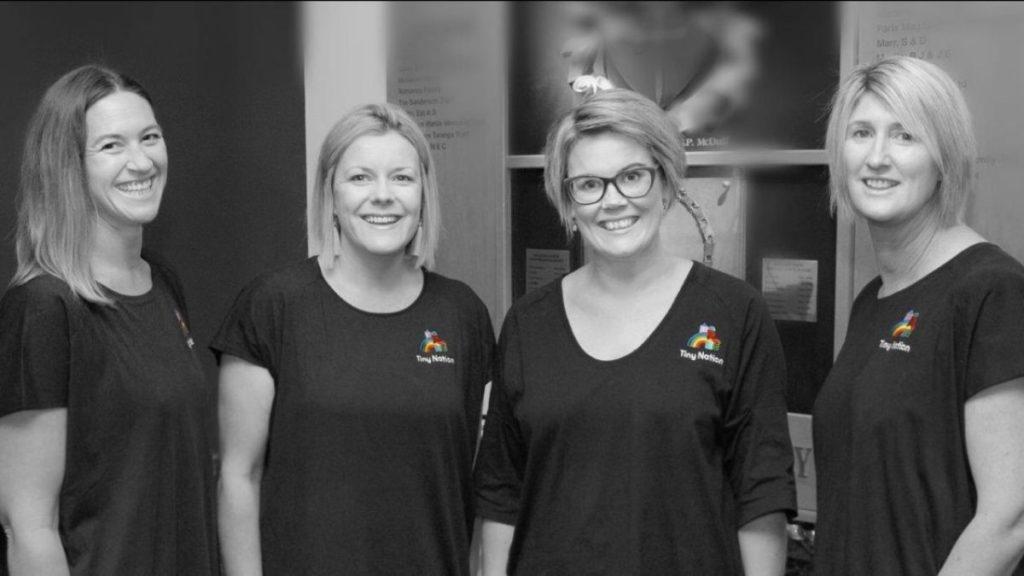New home-based early learning provider, Tiny Nation, welcomes today’s release of He taonga te tamaiti – every child a taonga: early learning action plan 2019-2029. The action plan outlines 25 actions intended to raise quality, improve equity and enable parents to have greater choice when considering early learning for their children.
Today’s launch of the action plan provides the foundation for long-lasting changes to early learning and a map for the future of early childhood education, Founding Director of Tiny Nation, Erin Maloney, says. “It’s exciting to see the Government focused on prioritising high quality outcomes for children and sharing more about what quality looks and feels like in early learning environments.”
Maloney believes that the introduction of a more collaborative approach to early learning is an opportunity for new direction in the sector to improve outcomes for children. “Creating Tiny Nation has been a dream of mine for a long time now. The early learning sector is going through a lot of change and there’s a bigger conversation at play around what the future of early learning looks like in New Zealand. I believe our children, parents, educators and teachers all deserve more than they currently have access to. Early learning should be about walking alongside families, educators and teachers to enable children to have the very best start in life. If our educators and teachers have a stronger voice and are valued more in their roles, they will feel supported and motivated to ensure the best outcomes for children.”
The early learning action plan introduces intentions to move to a fully qualified teacher workforce in teacher-led early learning centres. This will see Government incentivising for 100 percent and regulating for 80 percent qualified teachers in centres. This aligns with one of Tiny Nation’s key points of difference – 100% qualified educators. “Tiny Nation has been built on the idea that qualifications are a strong indicator of quality and we are proud to represent 100% trained educators who hold a Level 3 early childhood education certificate or higher. Professionalising home-based early learning is important to us and we’ve set out to create a new level of excellence in the sector,” says Maloney.
In addition to a firmer stance on qualifications, smaller child to teacher ratios are being introduced to support centre-based services to help make sure that infants and toddlers experience secure and consistent care. Maloney explains, “It’s heartening to see the plan for centre-based services embrace some of the key principles of home-based early learning. In our homes, children benefit from being one of only up to four children in care, allowing them the opportunity to build familiar and responsive relationships with their educator. A child’s brain triples in size during the first three years of life. During this time, we have our very best shot at laying the foundations for future learning, happiness and success. It makes total sense that we would focus on small adult to child relationships as research proves that learning and development can only happen as a result of being in a secure and nurturing relationship.”
The Government intends to also improve the consistency and levels of teacher salaries and conditions. This comes following a sector-wide campaign from teachers lobbying Government for pay parity so that they can be recognised the same way that teachers working in kindergartens are. Maloney believes that the improvement in in teacher salaries and conditions is well overdue considering the importance of their role in the lives of children. “We know that the early years of a child’s life are crucial to their emotional and mental development. We also know that we can’t care for our children without providing our educators and teachers with great working conditions. You can’t pour from an empty cup. A move to improve consistency and levels of salaries acknowledges that our educators and teachers hold an incredibly important role”, Maloney says.
The early learning action plan has been finalised based on sector wide feedback that started this time last year. The Ministry of Education will now work with the early learning sector, parents, whanau, hapū, iwi, communities and agencies to implement the actions in this plan. Maloney sees a lot of opportunity for anyone invested in the future of early learning to work together to inform the implementation of the actions shared in the plan. She explains, “the early learning action plan sets out an intention for the future of early learning in New Zealand. It is now up to the early learning providers, services, agencies and the Government to work collaboratively to live into this intention and support our children to thrive.”
You can read the full early learning action plan here.
More information on Tiny Nation can be found online at tinynation.co.nz and facebook.com/tinynation and by contacting Founding Director Erin Maloney on 021 633 784.

